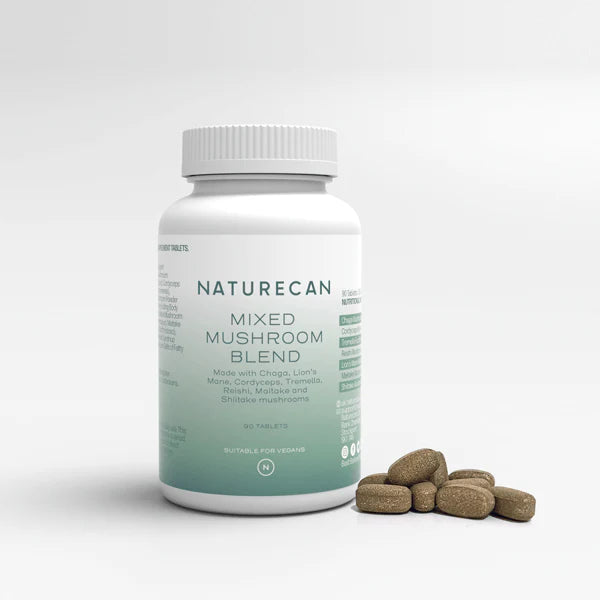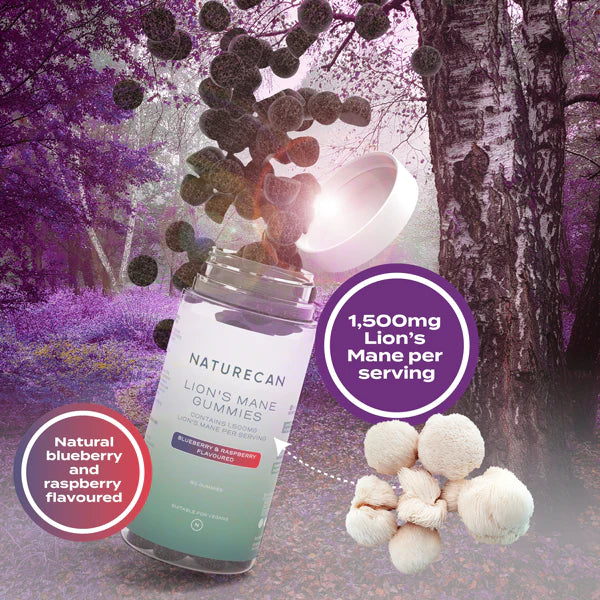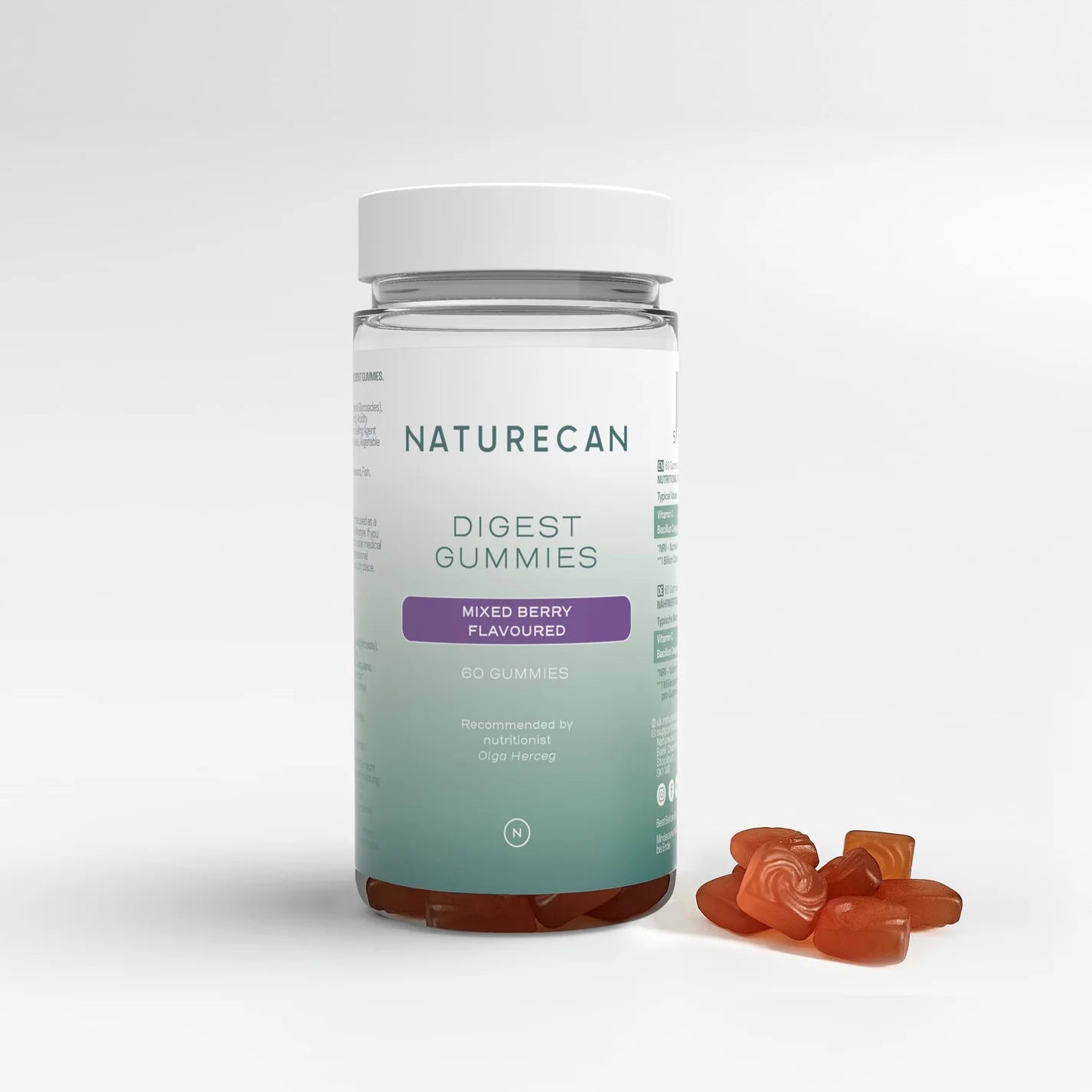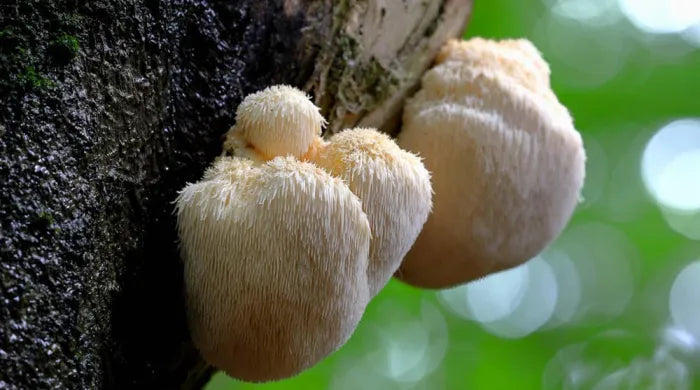Lion's Mane vs Reishi vs Chaga Mushroom: Discovering the Most Potent Health Benefits

Written by Georgia Chappell & Reviewed by Paul Holmes.
When choosing between lion’s mane, reishi, oyster mushrooms, shiitake mushrooms and chaga mushrooms, your health needs take centre stage. Is your ultimate aim to enhance cognitive function, bolster your immune system, or maximise antioxidant intake? In the lion’s mane vs reishi vs chaga mushroom debate, lion’s mane is celebrated for its cognitive benefits, reishi for immune support, and chaga for its antioxidant richness. This exploratory article compares these functional fungi, guiding you to make the most informed decision on which functional mushroom might best complement your wellness journey.
Key Takeaways:
- Lion’s Mane, Reishi, and Chaga each offer a unique myriad of benefits, including cognitive improvement, immune support, and antioxidant effects, recognised in both traditional medicine and modern research.
- When choosing your new go-to supplements, it’s advisable to look for high-quality products made from fruiting bodies, properly assess dosage for individual needs, and consider possible synergistic effects when combining different varieties.
- These popular functional mushrooms come packed with bioactive compounds and essential nutrients, such as beta-glucans, triterpenes, and vitamins, contributing to their overall health-promoting profiles. However, we recommend consulting with your healthcare provider before starting supplementation. This will allow you to be secure in your ultimate supplement decision.
The Battle of the Fungi: Lion's Mane vs Reishi vs Chaga
Among the top-ranked functional mushrooms, Lion’s Mane, Reishi, and Chaga stand out for their long-standing use in traditional medicine. They’re well renowned for potential stress resistance, mood stabilisation, and energy boosters as well as providing potential anti-inflammatory benefits.

These varieties include edible mushrooms such as maitake mushroom, oyster mushrooms, shiitake mushroom and turkey tail, which all contain bioactive elements. These antioxidants also may show some potential in managing diabetes and boosting immune function. Consequently, incorporating mushrooms into your diet can be highly beneficial.
Lion's Mane: The Brain-Boosting Mushroom
The Lion’s Mane mushroom is distinguished for its potential benefits relating to cognition. Recognisable by its flowing white spines, the fungus has been subjectively reported to enhance mental functions such as:
- Mental performance
- Concentration
- Recall abilities
- Clarity of thought
Recent research indicates that it may protect neural cells and encourage their regeneration. These findings from animal studies hint at the possibility that Lion’s Mane could be instrumental in staving off neurological disorders like Alzheimer’s or Parkinson’s disease. However, far more research is needed in these areas to confirm is Lion’s Mane can potentially aid in neurological disorders.
Beyond its impact on brain health, it is known for its possible anti-inflammatory effects and antioxidant capacities, which contribute positively to general wellness. With roots in traditional Eastern functional practices, this particular species can be ingested through different mediums, including dietary supplements and herbal teas. Vigilance regarding possible interactions or adverse reactions is advised if one is already taking other medications.
Reishi: The Immune System's Guardian
What are reishi mushrooms good for? Reishi mushrooms, or Ganoderma lucidum, are recognised for their immune system support. With its long history in traditional Chinese medicine, Reishi is often called the “mushroom of immortality”. This mushroom species contains one of the highest concentrations of beta-glucans amongst functional mushrooms, bolstering its reputation as a formidable supporter of the immune system.
In addition, Reishi mushrooms have been shown to reduce stress and support heart health.
Available in various forms, such as tinctures and powders, Reishi can be a valuable addition to your health regimen.
Chaga: The Antioxidant Powerhouse
The Chaga mushroom is a rich repository of antioxidants and thrives on the bark of birch trees. It potentially enhances immune system performance while also possibly having the ability to help alleviate gut inflammation. Its antioxidant composition is distinct from that of other functional mushrooms due to the presence of betulin derived from its birch tree host and an array of polysaccharides—components that provide Chaga with its exceptional health-boosting capabilities.
From ancient times in Siberian folk medicine to various Asian traditions, the use of Chaga has been celebrated for its remarkable ability to fight oxidative stress through potential antioxidant properties. Regular consumption, be it as nourishing Chaga tea or a dietary supplement form, can significantly bolster one’s overall well-being by tapping into this natural source of therapeutic potential.

Comparisons between Lions Mane vs Reishi vs Chaga
So, what are the differences between Lions Mane vs Reishi vs Chaga? Each of these popular functional mushrooms brings distinct benefits to the table, let’s see below:
- Lion’s Mane Mushroom: Known as the ‘think’ mushroom, Lion’s Mane is reputed for fostering productivity and creativity by serving as a potential brain stimulant that can improve memory and cognitive function.
- Reishi Mushroom: Referred to as either the queen of mushrooms or the chill mushroom, Reishi is primarily utilized for its potential stress-relieving qualities and bolstering the immune system.
- Chaga mushroom: This mushroom holds the title king of mushrooms due to its impressive antioxidant levels which may be able to provide substantial support to one’s immune system.
Nevertheless, individual reactions to these mushrooms can vary based on personal health conditions. Just like any supplement use, it is crucial to start with a small dose and increase gradually until you find an optimal quantity tailored for your unique health requirements. Seeking advice from a healthcare provider before incorporating any new supplements into your regimen is always recommended.

Nevertheless, individual reactions to these mushrooms can vary based on personal health conditions. Just like any supplement use, it is crucial to start with a small dose and increase gradually until you find an optimal quantity tailored for your unique health requirements. Seeking advice from a healthcare provider before incorporating any new supplements into your regimen is always recommended.
Comparative Analysis: Nutritional Profiles and functional Properties of mushrooms
Chaga, Lion’s Mane, and Reishi mushrooms are highly valued for their potential therapeutic benefits and are also abundant in vital nutrients. These functional mushrooms provide a wealth of health-supportive elements including proteins, dietary fibre, fats, minerals, and carbohydrates. They boast an impressive array of bioactive substances such as beta-glucans, amino acids, and B vitamins that play a crucial role in their nutritional composition and contribute to their acclaimed health-enhancing potential properties.
Nutritional Showdown: Vitamins and Minerals of these 3 mushrooms
Regarding essential nutrients, the trio of Lion’s Mane, Reishi, and Chaga stand out remarkably. Each one is a source of vitamin D, which is crucial for the maintenance of robust bones and effective immune responses. These edible mushroom types - including lion’s mane reishi - are rich in B vitamins. Specifically, Lion’s Mane provides an array of them such as niacin (B-3), thiamin (B-1), riboflavin (B-2), pyridoxine (vitamin B-6), biotin (B-7), and folate.
Looking at minerals provided by these fungi, Lion’s Mane in particular, offers beneficial amounts of magnesium, phosphorus and potassium. Meanwhile, Chaga contributes with its own set of valuable minerals like zinc. Iron and calcium to this nutritional ensemble. The health advantages derived from consuming these mushrooms stem not just from their vitamins and minerals, but also from various bioactive substances they contain.
| Nutrient | Lion's Mane | Reishi | Chaga |
|---|---|---|---|
| Vitamin D | Yes | Yes | Yes |
| B Vitamins | Niacin (B-3), Thiamin (B-1), Riboflavin (B-2), Pyridoxine (B-6), Biotin (B-7), Folate | Riboflavin (B-2), Niacin (B-3) | Traces of various B vitamins |
| Minerals | Magnesium, Phosphorus, Potassium | Potassium, Calcium, Magnesium | Zinc, Iron, Calcium |
Healing Compounds: Bioactive Elements at Work
The therapeutic substances and active components present in these mushrooms are crucial to the health advantages they offer. Among these constituents are:
- (1→3)-(1→6)-β-D-glucans
- Triterpenoids
- Phenolic materials
- Various proteins
- Small peptides
- Carbohydrate-binding lectins
These elements play a pivotal role in providing possible anti-inflammatory, antioxidant, and immunomodulatory benefits of the functional mushrooms.
Significantly influencing immune function, beta glucans within these fungi are integral to mounting defence mechanisms against fungal pathogens. Compounds such as triterpenes that Reishi mushrooms contain have been shown to possess anti-inflammatory properties which may lead to improved health conditions including enhanced sleep quality through their ability to reduce persistent inflammation.
Immune Support: Natural Killer Cells and Beyond
Functional mushrooms serve as potent allies for the immune system. Found within Lion’s Mane, Reishi, and Chaga are beta-glucans that contribute significantly to stimulating the immune system.
With a rich history in Asian traditional medicine, over 100 different mushroom species have been harnessed for therapeutic purposes, particularly some notable types used in therapy protocols. The compounds responsible may not only invigorate the body’s immune response.
How to Choose and Use functional Mushroom Supplements
As you delve into the realm of functional mushrooms, it’s essential to make informed selections. To truly harness the nutritional benefits that these powerful fungi have to offer, selecting superior-quality mushroom supplements is a must. What steps can you take to guarantee that your choice of product reflects the highest standard?
Dosage and Consumption: Finding the Right Balance
It is crucial to find the proper dosage and balance when using functional mushroom supplements to maximise their benefits.
It’s advisable to start with a lower dose and adjust it over time, tailoring it to meet your specific health requirements.
For an accurate assessment of the potential health benefits provided by functional mushrooms, you should maintain a steady regimen for about two months. To fully benefit from certain varieties such as Lion’s Mane and Chaga, they are optimally consumed earlier in the day so that their effects coincide with your body’s innate cycles.


Decoding Labels: Fruiting Bodies vs. Mycelium
Understanding the terminology on mushroom supplement labels can be complex, especially when discerning between mycelium and fruiting bodies. The familiar part of mushrooms that we consume is known as the fruiting body which grows above ground, whereas mycelium refers to an underground fungal network akin to roots.
When it comes to supplements derived from mycelium, they often feature a considerable amount of starch due to the challenges in separating them from their grain-based cultivation substrates. Furthermore, there are also regulatory requirements in many countries which ban the use of mycelium in food supplements.
Hence, it is advisable to choose mushroom supplements made explicitly from fruiting bodies. High-quality products will typically include information about beta-glucan content to verify their effectiveness. Look for labelling keywords such as ‘fruiting bodies’; this indicates you are likely selecting a superior-quality.
Can I combine mushrooms supplements?
It’s natural to be curious whether various functional mushrooms can be used with one another, and the good news is that they can! When you mix different types of mushrooms, their beneficial compounds may enhance each other’s effects within your body. For example, merging Lion’s Mane with Chaga allows you to consume them as part of coffee or tea preparations using powdered forms or take them together through capsules – an approach aimed at boosting their collective advantages.
While combining these powerful fungi can amplify their overall benefits, it’s critical to monitor the total amount being consumed to avoid adverse reactions and achieve optimal health results. It remains prudent for anyone considering starting a new supplement routine involving functional mushrooms—or any supplements, for that matter seek guidance from a healthcare professional first.
How to incorporate Mushrooms into Your Diet
Adding these potential health-promoting mushrooms to your diet can be a delicious and straightforward strategy for enhancing your well-being. Consider the following adaptable methods to include functional mushrooms in everyday cuisine:
- Mushroom supplements such as capsules, powder, or gummies
- Healing tonic teas
Mushroom-infused coffee
- Herbal tea blends
- Nutrient-enriched juices
- Fortified smoothies
- Flavorful savory dishes
- Enriching desserts

Whether you're blending Lion’s Head into your morning smoothie, having a lion's mane gummy during the day, enjoying Chaga-infused tea during the day, or sprinkling Reishi mushroom powder into a soothing soup at night, integrating these powerful mushrooms into various meals is simple. With endless possibilities available, you stand to gain substantial benefits from incorporating them regularly.
Frequently Asked Questions
Which is better: reishi or lion's mane?
Lion’s mane is celebrated for its potential ability to bolster cognitive function and reinforce the nervous system, while reishi stands out for its capacity to possibly amplify immune defences and maybe even mitigate stress. Select the one that best fits your particular health objectives.
Can you take Chaga reishi and Lion's Mane together?
Yes, it’s safe to combine Chaga, reishi, and Lion’s Mane. There are no known reasons to avoid mixing these functional mushrooms.
Which is better: reishi or Chaga?
Incorporating both Reishi and Chaga into your daily routine could be a tremendously advantageous enhancement to your health journey, as each offers distinct health benefits.
Are Lion's Mane, Reishi, and Chaga mushrooms suitable for everyone?
Most individuals can safely consume Lion’s Mane, Reishi, and Chaga mushrooms. Before beginning any new supplement routine with these mushrooms, it is crucial to seek advice from a healthcare professional because there might be a risk of allergic reactions or digestive disturbances.
How long does it take to notice the benefits of taking these mushroom supplements?
It’s recommended to consistently supplement with functional mushrooms for approximately two months to properly gauge the health benefits achieved. You should notice the benefits after this time period.
Conclusion
We have discovered that various mushrooms, namely Lion’s Mane, Reishi, and Chaga, possess unique health advantages. These may potentially include enhancing cognitive abilities, bolstering the immune system, and diminishing inflammation. Although scientific inquiry continues to delve into their benefits, scientific inquiry continues to delve into their benefits. These fungi have a longstanding history in traditional medicine practices with contemporary research affirming their value.
If your focus is on augmenting brain function or strengthening immune defences—or if you’re curious about the realm of functional mushrooms—incorporating these remarkable fungi into your wellness routine could be beneficial.
Summary
To sum up, the advantages provided by functional mushrooms like Lion’s Mane, Reishi, and Chaga are substantial. For those in pursuit of better cognitive function or seeking to bolster their immune system with potent antioxidants, these mushrooms may be a valuable inclusion in one’s diet and health regimen. The effectiveness of these supplements is closely tied to quality. It’s imperative to select products derived from the mushroom fruiting bodies as they hold an abundance of beneficial compounds. By selecting an appropriate product and dosage, one can utilise the remarkable capabilities of these fungi for improved health and wellness.
Discover our Naturecan Blog

How to improve your gut microbiome health in 16 steps
In this guide, you’ll discover 16 practical ways to enhance your gut health with natural, attainable changes. Read Now!
Read Article
What is Lion's Mane and what are their potential benefits?
As the world leans towards natural remedies, discover what the benefits are for you? Discover all in our comprehensive guide!
Read Article
Unlocking 6 Resveratrol Benefits: Balancing Hype with Science
In this article, we will sift through evidence to shed light on how resveratrol may aid in heart health, cognitive function and more!
Read Article



